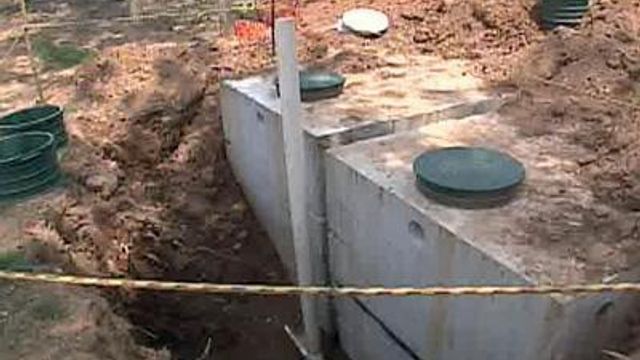Building Codes Creating a Barrier for Water-Saving System
An innovation that could save millions of gallons of water is not allowed under state building codes – systems that can pump filtered rain water into homes for non-drinking uses.
Posted — Updated"This is the tank, and as you can see, it's full of water from the rain today," Rex Bost with Bost Custom Homes said as he showed an irrigation system to WRAL.
Bost designed his system so that rain coming off his roof and other areas would flow into a massive underground tank. He has used the system for years to water his grass.
As Raleigh's water supply continues to drop, Bost came up with a plan to conserve even more water.
"I thought it made no sense to be flushing potable water, processed water down the toilets," he said.
Bost installed extra piping in a home he built in Franklin County in hopes of sending rain water from the tanks into the house to flush the toilets.
"Then I learned that the codes would not allow us to do that without first processing the water," Bost said.
The codes could soon change, though, according to Dan Tingen, chairman of the North Carolina Building Code Council.
"I have every reason to think that that will move forward and at least allow and set aside a system that will encourage homeowners, developers and builders to create rainwater-harvesting systems with the idea that that water will be funneled back into the house for things like flushing toilets," Tingen said.
The big question is just how much will it cost to pump filtered rain water into your home.
WRAL was told that a tank costs about $10,000.
Bost said running pipes into a new home cost under $500, which is an investment some homeowners will sure to be looking into as the drought continues.
The Army Corps of Engineers, which manages Falls Lake, issued a forecast last week that suggested the lake, which is Raleigh's primary source of drinking water, would run dry this summer.
State officials are urging residents to conserve water because of waning supplies and the prospect that conditions could get worse. The National Weather Service expects the next three months to be dryer than normal.
• Credits
Copyright 2024 by Capitol Broadcasting Company. All rights reserved. This material may not be published, broadcast, rewritten or redistributed.






